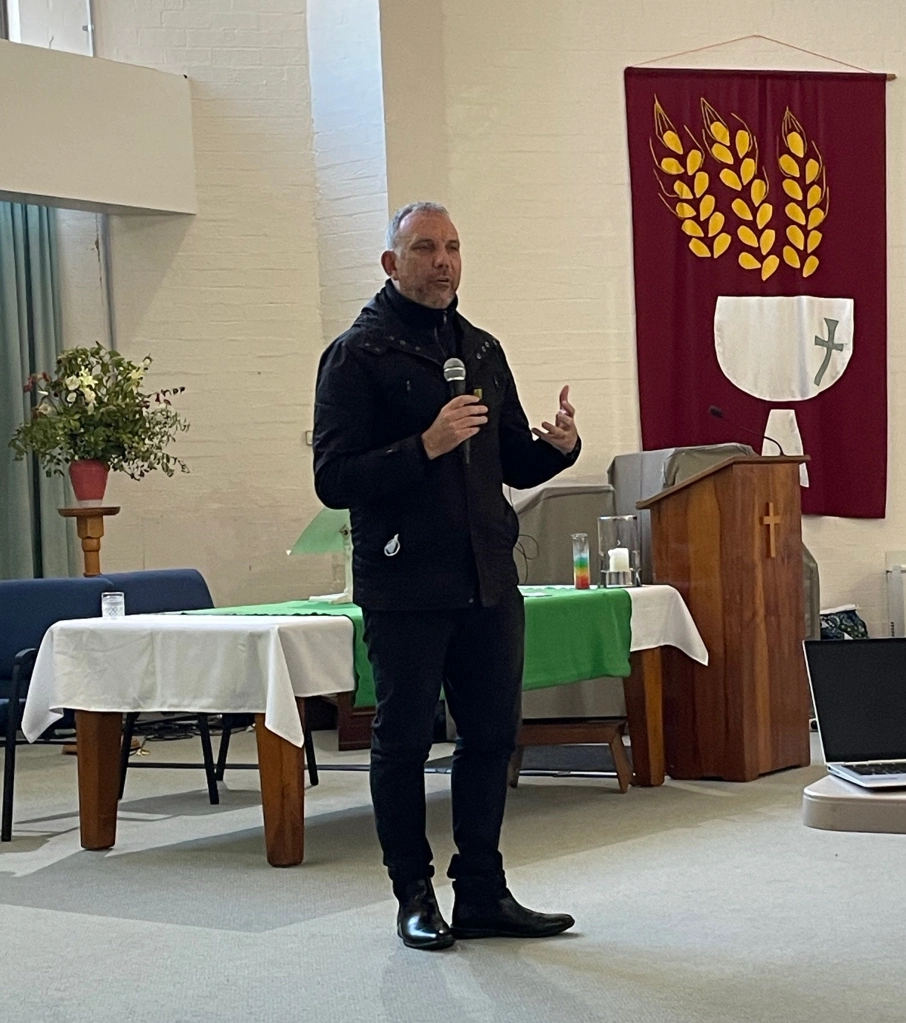Members of the Tuggeranong Uniting Church Council and a group of leaders from within the Congregation met recently in a workshop based around the CliftonStrengths Inventory. It was a most enjoyable and productive day, and something that other Church Councils could well consider doing when they come to the place that Tuggeranong finds themselves in, looking to call a new minister into placement with them.
Ben Gilmour, Director of Vital Leadership in the Synod of NSW and the ACT of the Uniting Church in Australia, led the group through a process of discussion, designed to assist with the task of discerning “the gifts and graces” that would be needed in the minister who would be called to follow Elizabeth Raine in ministry at Tuggeranong, as she retires later this year. Presbytery members of the Joint Nominating Committee who would be involved with representatives of the Congregation in that task were also participating on the day. There were eight discrete sections to the workshop.
Ben is trained in the use of the Inventory in various situations, and he is able to adapt the programme to suit the specific needs of a Congregation, be it team building, leadership development workshops, or coaching of an individual or a leadership team.
Those present for the Tuggeranong workshop had completed the Clifton Strengths Inventory ahead of the meeting, enabling Ben to prepare an overview of the relative strengths of the combined leadership in each of the four areas measured by this Inventory: Strategic Thinking, Relationship Building, Influencing, and Executing. This was a revelatory exercise in itself. Ben then had collated a comprehensive statement of the practices and vision of the Congregation, as seen through the collated leadership reports.
Personally, as a longterm sceptic about psychological-type assessment tools, I was cautious. I know that Myers-Briggs and the Enneagram offer some value, but I don’t like the way that people can be “boxed” into certain categories by the way they are used. (You’re a Number Four? With a Seven Wing? Oh! A Thinking Introvert? With a tendency to Perception? Really?)
But this was a more detailed tool, open to greater complexities and subtleties, than anything I had previously experienced. The online assessment tool is capable of describing 34 themes that make up the user’s personality. The results of the test “are intended to help individuals understand their unique strengths and how they can use them to achieve their goals and improve their performance.”
Collated together, the results of the twenty people who completed the inventory provided a rich description of the active leadership within the Congregation. When I read my own report, it felt like I was “looking into a mirror”—the person described was me! Others who took part had similar experiences. The reports are realistic and honest (and detailed).
The 34 themes are divided into 4 domains. First, Strategic Thinking covers Analytical, Context, Futuristic, Ideation, Input, Intellection, Learner, and Strategic strengths. Next, Relationship Building encompasses Adaptability, Connectedness, Developer, Empathy, Harmony, Includer, Individualization, Positivity, and Relator.
Then, Influencing details Activator, Command, Communication, Competition, Maximizer, Self-assurance, Significance, and something charmingly called “Woo”. Finally, in the area of Executing, the test dealt with Achiever, Arranger, Belief, Consistency, Deliberative, Discipline, Focus, Responsibility, and Restorative.
The “payout” at the end of the day was a strong awareness amongst the Congregation’s leadership of what the community values, where their strengths of the collective leadership lie, what might be done to build on these strengths, and what areas could benefit from attention in the future.
The workshop has assisted the JNC to form a clear picture of what they would be looking for in a minister who might be called to Tuggeranong in 2024. That JNC has a strong base for the discernment conversations that they will have, and the wider leadership team of the Congregation has a firm foundation for developing and extending the already fruitful ministries that the Congregation is undertaking in its mission to the people of the Tuggeranong Valley.
John Squires is the Editor of With Love to the World. This piece first appeared on his blog, An Informed Faith.













